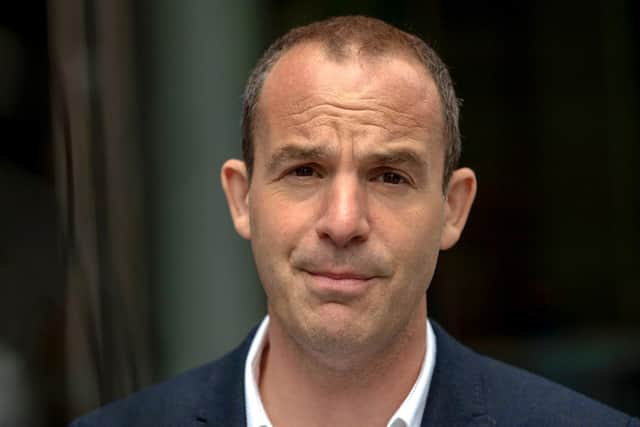Mortgage prisoners are struggling to pay for 'adequate' food supply, says campaigner


Louise Maule, from York, aims to run 5k every day until Christmas to raise funds to help her fellow mortgage prisoners feed and clothe their families.
She is calling on the Treasury to implement the findings of a report supported by consumer champion Martin Lewis to ease the mortgage prisoners' financial plight
Advertisement
Hide AdAdvertisement
Hide AdMortgage prisoners are trapped with their current lenders, which are often inactive or not authorised to offer new products, leaving many paying higher rates than they would otherwise need to.


They are often rejected when they apply for cheaper mortgages because they do not meet toughened borrowing criteria brought in after the 2008 financial crash, even if they are keeping up with repayments.
Ms Maule, said: "I decided to run this challenge for the mortgage prisoners crisis fund after it was made apparent how many mortgage prisoners would struggle throughout the festive period.
"We are part of an active mortgage prisoners group which is campaigning tirelessly. We took out a mortgage with Northern Rock in 2006 through a broker.
Advertisement
Hide AdAdvertisement
Hide AdShe added: "Mortgage prisoners are facing reduced income due to COVID; mortgage payments taking priority so that no one has their homes repossessed.. they are going without adequate food, and struggling to pay for other necessities.
"I know most mortgage prisoners are on 4+ % interest mortgages. We have been victims of the banking crisis since 2008. We have paid over the Bank of England rates for all this time, we have paid for all the mistakes that caused the crash and more.
She added: "All mortgage prisoners want to be able to switch to active lenders that are regulated by the FCA, to be able to pay an interest rate that others are paying and have paid for years. We are now with another inactive lender who bought our mortgage a year ago. We had no choice in this matter."
"We were young and buying our first home so trusted the professionals,'' Ms Maule said: "We took the mortgage for a five- year fixed interest only on the basis that once the term ended we would go to a repayment mortgage. Unfortunately before we were able to do this we hit the financial crash."
Advertisement
Hide AdAdvertisement
Hide AdWithout warning, Ms Maule said she found that her mortgage had been bought by an inactive lender.
"When our term ended we were stuck paying high interest,'' she said.
She said her family has failed in its attempts to remortgage with an active lender.
Ms Maule added: "We now owe more than what we originally borrowed in 2006. We took out a £117,000 mortgage and now owe £126,000."
Advertisement
Hide AdAdvertisement
Hide AdShe added: "So we are stuck in our first home, we are now a family of five living in a two-bedroomed end terrace house, we have a 10 year old boy, seven- year -old girl and a two- year old boy who all share a room.
"Our youngest has also been in and out of hospital since he was born due to health and hasn’t had the space to recover from surgeries.
Consumer champion Martin Lewis has called for urgent Government action to free Britain's mortgage prisoners. A report on mortgage prisoners has been published by the London School of Economics and Political Science (LSE).
The research was commissioned by MoneySavingExpert.com, which Mr Lewis founded, and was also funded by a personal donation from him.
Advertisement
Hide AdAdvertisement
Hide AdThe report argues that the Government should free mortgage prisoners. MoneySavingExpert and the LSE are calling on the Government to urgently use data on all UK borrowers to accurately calculate the costs of proposed policy measures.
Potential solutions could include offering interest-free Government equity loans to bring down some borrowers’ loan-to-value ratios so they can re-mortgage.
There could also be mortgage rescue initiatives, allowing those whose mortgages are financially unsustainable to remain in their homes as tenants, while the property is sold to housing associations with a buy-back option later.
The LSE also suggests that borrowers are given better information about their loans and protections and are sign-posted to debt counselling and advice.
Advertisement
Hide AdAdvertisement
Hide AdA Treasury spokesperson said: “We know that being unable to switch your mortgage can be incredibly difficult.
"Thousands of borrowers will now find it easier to switch to an active lender or continue interest only payments thanks to recent rule changes by the Financial Conduct Authority – and we have been working closely with the industry to ensure firms are helping those who are eligible to switch."
The statement added: "Recognising this is an uncertain time for people, we put in place the lender ban on repossessions in March 2020 (now extended until 31st January 2021) so that no one – including borrowers with inactive lenders - will lose their home over this period."
"The Government worked closely with the FCA on recent rule changes (announced in October) that make it easier for borrowers to switch from an inactive lender to an active lender in the same group by removing some of the regulatory affordability barriers to accessing new deals.
Advertisement
Hide AdAdvertisement
Hide Ad"The rules also help borrowers coming to the end of their interest-only mortgage by allowing them to continue making payments for 12 months rather than selling their property during this uncertain time."
"The Government also previously worked with the FCA to implement rule changes in October 2019, to allow lenders to offer customers a new mortgage deal without needing to conduct an absolute affordability assessment provided it is not for a greater amount than their existing mortgage and the customer meets certain criteria.
"A number of active lenders have brought options to market for these borrowers and we hope to see more in the coming months.
"In September, the Money and Pensions Service launched online information and a dedicated phone service as a key source of information and advice for borrowers with inactive lenders, including signposting to specific brokers that will be able to help them look for a deal."
Advertisement
Hide AdAdvertisement
Hide AdThe spokesman confirmed the Treasury will consider proposals from the London School of Economics and Martin Lewis.
The spokesman added: "The LSE report identifies 250,000 mortgage prisoners – this figure is the total number of borrowers with inactive lenders. The FCA’s data from July (before the recent rule change) shows that: Around 125,000 of these 250,0000 borrowers were already able to switch and 88,000 would have benefitted from doing so.
"Of the remaining 125,000 borrowers, around 70,000 are in arrears so would not normally be able to switch mortgage provider even if they were with an active lender.
"The Government is committed to providing these borrowers with appropriate support – for example, by providing an extra £37.8 million for debt advice providers this year, bringing the budget for free debt advice in England to over £100 million this year.
Advertisement
Hide AdAdvertisement
Hide Ad"That leaves 55,000 borrowers who were not in arrears and were not able to switch – the FCA found they were paying slightly more than similar borrowers (0.4 ppts on average) and so the recent rule changes will have a meaningful impact for these borrowers."
Comment Guidelines
National World encourages reader discussion on our stories. User feedback, insights and back-and-forth exchanges add a rich layer of context to reporting. Please review our Community Guidelines before commenting.